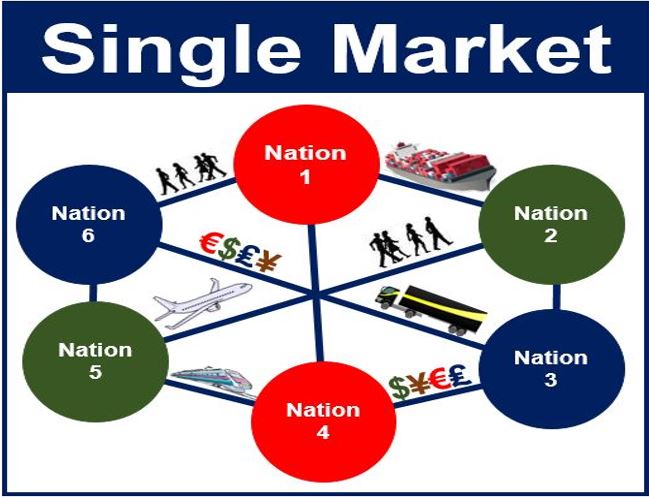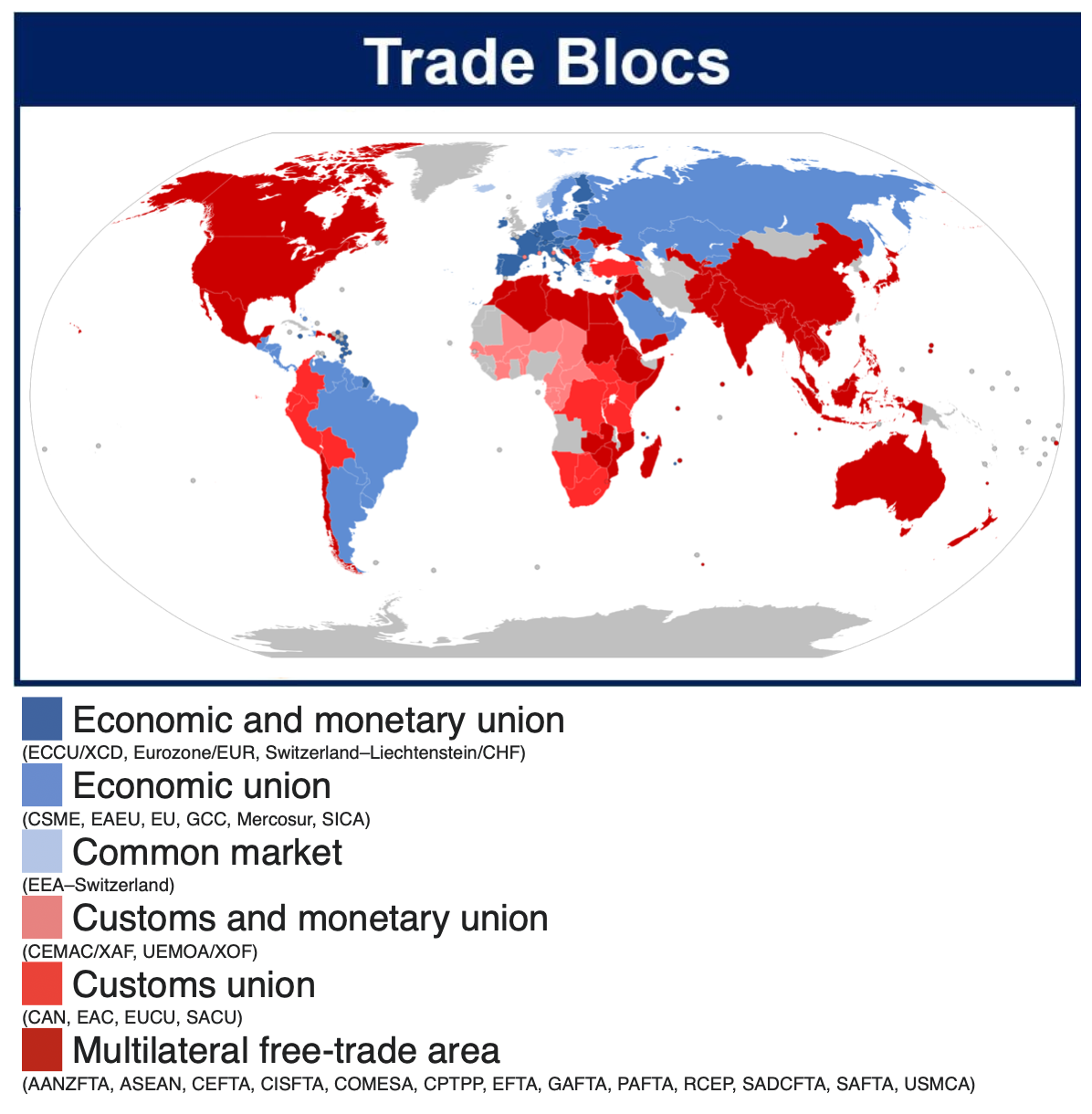What is a single market? Definition and meaning
A single market consists of a group of countries that do not charge tax on goods and services they import from and export to each other, thus forming one market. The term is commonly used when talking about the European Union (EU) and the United States-Mexico-Canada Agreement (USMCA) – sometimes referred to as “NAFTA 2.0”.
The single market is one of the final stages of a commercial cooperation strategy between nations, it follows the common market stage.
There are different levels of single markets, from the free movement of capital and services, to the total elimination of trade barriers and a common currency. Below are some examples:
Free Trade Area – there are no internal trade barriers. However, there are no common external tarrifs, common currency or common economic policy.
 Creating a single market has several advantages, such as benefiting from larger economies of scale, and having more global economic and political clout.
Creating a single market has several advantages, such as benefiting from larger economies of scale, and having more global economic and political clout.
Customs Union – there are no internal trade barriers, and there is a common external tariff. However, there is no common currency or common economic policy.
Single Market – there are no internal trade barriers, there is a common external tariff, plus the free movement of labor. There might be a common single currency. In the case of the EU, some nations are in the Eurozone (the euro is their currency), while others are not.
Economic Union – in this case there is total unity. It is the ultimate goal of a single market All members fuse into virtually one country. There is total free movement of goods & services (including financial services), labor & capital, without regard to national boundaries.
According to the European Commission:
“The idea behind the Single Market is simplicity itself: treat the EU as one territory where people, money, goods and services interact freely to stimulate competition and trade, and improved efficiency. The increased choice of goods and services will raise quality and cut prices. It is the basic recipe for prosperity.”
The objectives of a single market include: eliminating trade barriers, facilitating the movement of goods and services between member states, promoting conditions of fair competition and increased investment within the trade bloc, and effectively protecting and enforcing intellectual property rights.
John F. Kerry, the 68th United States Secretary of State, said:
“NAFTA [replaced by the USMCA] recognizes the reality of today’s economy – globalization and technology. Our future is not in competing at the low-level wage job; it is in creating high-wage, new technology jobs based on our skills and our productivity.”
What’s the difference between NAFTA and the USMCA?
In the context of the United States-Mexico-Canada Agreement (USMCA), NAFTA’s prior stance of zero-tariff policies remains untouched.
So what changed?
According to the Official Website of the International Trade Administration, there’s been a notable enhancement in U.S. opportunities within Canada’s dairy sector, among other key modifications. A contemporary section dedicated to sanitary and phytosanitary (SPS) measures has been integrated, introducing actionable guidelines to confirm that SPS initiatives are founded on scientific evidence, and are transparently and fairly rolled out.
In addition, the new agreement “makes improvements in customs and trade facilitation, including agreement by Canada and Mexico to raise their de minimis value levels for taxes and duties on lower value express shipments, allowing certain shipments to enter with minimal formal entry procedures.”
Trade blocs across the world

There are many regional trade blocs across the world (as of October 2023).
Eminent economists say economic union can only succeed if all member states belong to one currency, have one central bank, and have identical monetary and economic policies.
The problem is that some member states of a common or single market do not want total union, while others do. Some countries may welcome the economic benefits of a trade bloc, but insist on keeping complete control of its own tax policy.
In this article, ‘economic benefits’ refers to the overall economy rather than an individual company.

